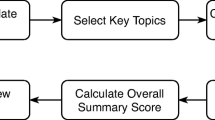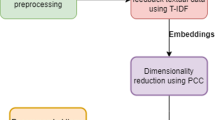Abstract
In this paper we address a novel sentiment analysis task of rating inference. Previous rating inference tasks, which are sometimes referred to as “seeing stars”, estimate only one rating in a document. However reviewers judge not only the overall polarity for a product but also details for it. A document in this new task contains several ratings for a product. Furthermore the range of the ratings is zero to six points (i.e., stars). In other words this task denotes “seeing several stars in a document”. If significant words or phrases for evaluation criteria and their strength as positive or negative opinions are extracted, a system with the knowledge can recommend products for users appropriately. For example, the system can output a detailed summary from review documents. In this paper we compare several methods to infer the ratings in a document and discuss a feature selection approach for the methods. The experimental results are useful for new researchers who try this new task.
Preview
Unable to display preview. Download preview PDF.
Similar content being viewed by others
References
Berger, A.L., Della Pietra, S.A., Della Pietra, V.J.: A maximum entropy approach to natural language processing. Computational Linguistics 22(1), 39–71 (1996)
Cohen, J.: A coefficient of agreement for nominal scales. Educational and Psychological Measurement 20(1), 37–46 (1960)
Goldberg, A.B., Zhu, X.: Seeing stars when there aren’t many stars: Graph-based semi-supervised learning for sentiment categorization. In: HLT-NAACL 2006 Workshop on Textgraphs: Graph-based Algorithms for Natural Language Processing (2006)
Joachims, T.: Transductive inference for text classification using support vecor machines. In: Proceedings of the Sixteenth International Conference on Machine Learning, pp. 200–209 (1999)
Kawano, Y., Shimada, K., Endo, T.: Sentence polarity classification based on a scoring method (in Japanese). In: HINOKUNI Symposium 2007 CD-ROM A-3-4 (2007)
Kobayashi, N., Iida, R., Inui, K., Matsumoto, Y.: Opinion extraction using a learning-based anaphora resolution technique. In: Proceedings of the Second International Joint Conference on Natural Language Processing (IJCNLP-2005), pp. 175–180 (2005)
Koppel, M., Schler, J.: The importance of neutral examples in learning sentiment. Computational Intelligence 22(2), 100–109 (2006)
Okanohara, D., Tsujii, J.: Assigning polarity scores to reviews using machine learning techniques. In: Proceedings of the 2nd International Joint Conference on Natural Language Processing (IJCNLP), pp. 314–325 (2005)
Pang, B., Lee, L.: Seeing stars: Exploiting class relationships for sentiment categorization with respect to rating scales. In: Proceedings of the 43th Annual Meeting of the Association for Computational Linguistics (ACL), pp. 115–124 (2005)
Pang, B., Lee, L., Vaithyanathan, S.: Thumbs up? sentiment classification using machine learning techniques. In: Proceedings of the Conference on Empirical Methods in Natural Language Processing (EMNLP), pp. 79–86 (2002)
Tsutsumi, K., Shimada, K., Endo, T.: Movie review classification based on a multiple classifier. In: The 21th Pacific Asia Conference on Language, Information and Computation (PACLIC) (2007)
Turney, P.D.: Thumbs up? or thumbs down? semantic orientation applied to unsupervised classification of reviews. In: Proceedings of the 40th Annual Meeting of the Association for Computational Linguistics, pp. 417–424 (2002)
Vapnik, V.N.: Statistical Learning Theory. Wiley, Chichester (1999)
Wilson, T., Wiebe, J., Hwa, R.: Just how mad are you? finding strong and weak opinion clauses. In: AAAI Spring Symposium on Exploring Attitude and Affect in Text: Theories and Applications (2004)
Zhuang, L., Jing, F., Zhul, X.-Y.: Movie review mining and summarization. In: Proceedings of the ACM 15th Conference on Information and Knowledge Management (CIKM-2006), pp. 43–50 (2006)
Author information
Authors and Affiliations
Editor information
Rights and permissions
Copyright information
© 2008 Springer-Verlag Berlin Heidelberg
About this paper
Cite this paper
Shimada, K., Endo, T. (2008). Seeing Several Stars: A Rating Inference Task for a Document Containing Several Evaluation Criteria. In: Washio, T., Suzuki, E., Ting, K.M., Inokuchi, A. (eds) Advances in Knowledge Discovery and Data Mining. PAKDD 2008. Lecture Notes in Computer Science(), vol 5012. Springer, Berlin, Heidelberg. https://doi.org/10.1007/978-3-540-68125-0_106
Download citation
DOI: https://doi.org/10.1007/978-3-540-68125-0_106
Publisher Name: Springer, Berlin, Heidelberg
Print ISBN: 978-3-540-68124-3
Online ISBN: 978-3-540-68125-0
eBook Packages: Computer ScienceComputer Science (R0)




